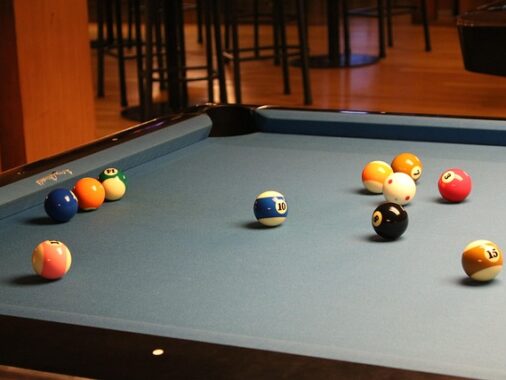Darts is a game that has been enjoyed in pubs and taverns for centuries, but it has evolved significantly over time into a professional sport that attracts players from around the world. In this article, we will explore the fascinating history of darts and how it has become the game we know and love today.
The Origins of Darts
The origins of darts are somewhat shrouded in mystery, but it is believed that the game started as a pastime for soldiers in medieval England. The soldiers would throw arrows at the bottom of a wine barrel, and whoever hit the target was declared the winner. Over time, the barrels were replaced with wooden targets, and the arrows were replaced with darts.
As the game evolved, it became a popular pub game in England and other parts of Europe. In the early days, darts was played with a simple wooden board and a set of darts made from wood or metal. The scoring system was also much simpler than what we see today, with players simply adding up their points and trying to hit a target number to win.
The Modernization of Darts
In the mid-20th century, darts underwent a significant modernization. The first big change was the introduction of the wire ring around the board. This made it easier to see whether a dart had landed in a specific segment of the board and made the game more consistent.
Around the same time, the scoring system was also revamped. The new system involved subtracting the score from 501 or 301, depending on the version of the game being played. This added an extra layer of strategy to the game, as players had to think about their remaining score and which segments of the board to hit to get to zero.
The Rise of Professional Darts
In the 1970s, darts began to gain a following on television. The first televised darts tournament was the News of the World Championship, which was held in 1971. The tournament was a huge success and sparked interest in the game among a wider audience.
As darts gained more exposure, it also began to attract a higher caliber of player. The first professional darts organization, the British Darts Organisation (BDO), was founded in 1973, and it quickly became the governing body for the sport in the UK.
In the 1980s, darts became a major spectator sport in the UK, with hundreds of thousands of fans tuning in to watch tournaments on television. The popularity of the game also spread to other parts of the world, and in 1992, the World Darts Council (now the Professional Darts Corporation, or PDC) was founded to oversee professional darts worldwide.
Today, darts is played at the highest level by some of the most skilled athletes in the world. The PDC World Championship, held annually at Alexandra Palace in London, is one of the biggest events in the darts calendar, and it attracts top players from around the globe.
The Future of Darts
As darts continues to grow in popularity, it is likely that we will see even more changes and innovations in the game. One area that is ripe for development is technology. Already, we are seeing the introduction of new scoring systems that use cameras and sensors to detect where darts have landed on the board.
There is also a growing interest in the use of virtual reality and other digital technologies to enhance the darts experience. These technologies could allow players to compete against each other from anywhere in the world, opening up new opportunities for the sport and its fans.
Conclusion
Darts has come a long way since its origins as a pastime for medieval soldiers. Today, it is a professional sport enjoyed by millions of people around the world. The game has evolved significantly over the years, from simple wooden boards and metal darts to high-tech scoring systems and digital innovations.
As darts australia continue to grow in popularity, it is clear that it will continue to evolve and adapt to new technologies and trends. Whether you are a casual player or a serious competitor, there has never been a better time to be a fan of this exciting and engaging sport.
So next time you step up to the oche, take a moment to appreciate the long and fascinating history of this wonderful game. And who knows – you might just be witnessing the next chapter in the evolution of darts.






